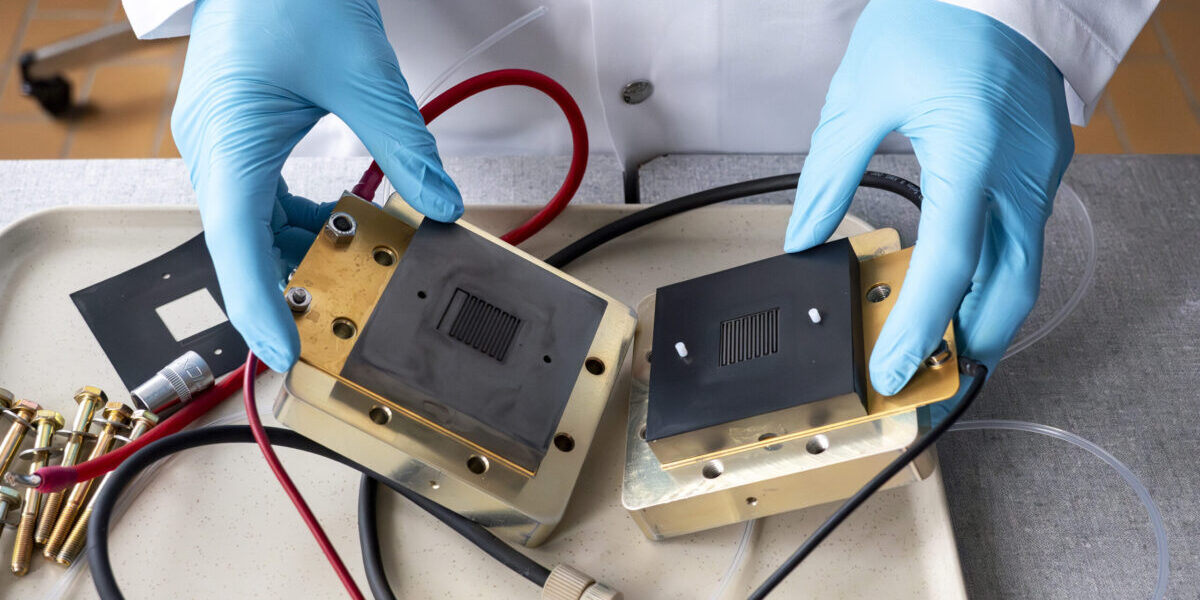From pv magazine Germany
A Swiss scientist claims that redox flow batteries offer an alternative to lithium-ion batteries, as they do not use rare earths and toxic materials. However, they face challenges due to low energy density and limited market share.
David Robber, a researcher from Switzerland’s Federal Laboratories for Materials Science and Technology (EMPA), seeks to address this issue by enlarging the electrochemical cells of batteries for faster charging and discharging, while also developing larger tanks for higher storage capacity.
“Flow batteries have an energy density around ten times lower than batteries made of solid storage materials,” he said, noting that the more storage material that can be dissolved in the electrolyte, the higher the energy density of a flow battery. “However, high concentrations thicken the solution, and you need a lot more energy to pump it through the cell.”
Robber wants to develop a hybrid between a flow battery and a lithium-ion battery by embedding solid storage materials in the tank of the flow battery.
Popular content
“If the dissolved material and the solid storage material are precisely matched, they can transfer energy between each other,” he said. “This allows the scalability of flow batteries to be combined with the high energy density of batteries with solid storage materials.”
Reber acknowledged he will first have to identify suitable materials that would ideally work stably for the storage tanks over an operating period of 20 years. He also mentioned chelate as a possible candidate for the dissolved storage material and described it as a multi-armed organic molecule that “wraps” around a metal ion. “Depending on how many arms the organic molecule – the ligand – has, the redox potential changes,” he said.
Reber said he doesn't have to start from scratch for the project, as during his postdoctoral period at the University of Colorado, he researched a chelate-based redox flow battery.
At the end of his Swiss research project, which is scheduled to last four years, Reber wants to have a well-functioning battery with additional solid storage. “If this approach works, the potential applications are very diverse,” he stated. “All it would take would be pumps and a few pipes.”
This content is protected by copyright and may not be reused. If you want to cooperate with us and would like to reuse some of our content, please contact: editors@pv-magazine.com.



1 comment
By submitting this form you agree to pv magazine using your data for the purposes of publishing your comment.
Your personal data will only be disclosed or otherwise transmitted to third parties for the purposes of spam filtering or if this is necessary for technical maintenance of the website. Any other transfer to third parties will not take place unless this is justified on the basis of applicable data protection regulations or if pv magazine is legally obliged to do so.
You may revoke this consent at any time with effect for the future, in which case your personal data will be deleted immediately. Otherwise, your data will be deleted if pv magazine has processed your request or the purpose of data storage is fulfilled.
Further information on data privacy can be found in our Data Protection Policy.